20th Sunday in Ordinary Time Year A
Sunday August 16, 2026

A Faith That Reaches Out
The 20th Sunday in Ordinary Time Year A reminds us that God’s love is for all people. The readings show how faith and mercy cross every border. Isaiah speaks of God’s house as a place of prayer for every nation. Paul tells us that God’s gifts are never withdrawn. The Gospel shows us a woman from outside Israel who trusted in Jesus and was heard.
These passages show the wide embrace of God’s plan. No one is left out if they seek Him with faith. The Canaanite woman’s courage in asking Jesus for help teaches us to keep praying, even when it seems hard. Paul’s message tells us that mercy is for all, and Isaiah’s vision points to a future where every person is welcome to worship.
On the 20th Sunday in Ordinary Time Year A, the readings remind us that faith, trust, and hope unite people from every land. God’s love reaches past barriers of culture, history, and nation. His call is the same for everyone: come, believe, and be made whole.
Mass Readings for the 20th Sunday in Ordinary Time Year A
- First Reading – Isaiah 56:1, 6-7: The LORD calls for righteousness and justice. Foreigners who love and serve Him, keeping the covenant and observing the Sabbath, will find acceptance in His house—a house of prayer for all nations.
- Responsorial Psalm – Psalm 67: May God’s compassion and blessings shine upon us, revealing His ways to all nations, leading to salvation. Let all praise Him, rejoicing in His just rule and guidance.
- Second Reading – Romans 11:13-15, 29-32: Brothers and sisters, as the apostle to the Gentiles, I glorify my ministry, making my race envious for salvation. Rejection brings reconciliation, and God’s gifts and call endure. Mercy awaits all.
- Gospel – Matthew 15:21-28: A Canaanite woman pleads for Jesus’ help, seeking healing for her possessed daughter. Though initially hesitant, Jesus praises her great faith. Her daughter is healed instantly.
The readings above are for lectionary cycle A. For other years see the links below:
20th Sunday in Ordinary Time Year B
20th Sunday in Ordinary Time Year C
O woman, great is your faith! Let it be done for you as you wish.
Matthew 15:28
Themes for the 20th Sunday in Ordinary Time Year A
The readings for the 20th Sunday in Ordinary Time Year A show that God welcomes all who follow Him. They also teach about faith, mercy, and perseverance.
- God welcomes all people: Isaiah speaks of foreigners being accepted if they follow God’s ways. Jesus helps a Gentile woman, showing that God’s love is for everyone.
- Faith moves Jesus: The Canaanite woman does not give up. Her strong faith leads Jesus to heal her daughter.
- God’s mercy is for all: Paul explains that God’s mercy is not just for one group. He shows kindness to everyone, even when they fail.
- Persistence in prayer: The woman keeps asking Jesus for help. Her persistence shows the power of not giving up in prayer.
- Obedience to God matters: Isaiah says those who keep God’s covenant will be accepted. Following God’s ways leads to blessings.
- God’s promises never change: Paul says God’s gifts and call last forever. His love and plan stay the same.
The 20th Sunday in Ordinary Time Year A reminds us that God does not turn away those who seek Him. Faith and perseverance open the way to His blessings.
Resources for the 20th Sunday in Ordinary Time Year A
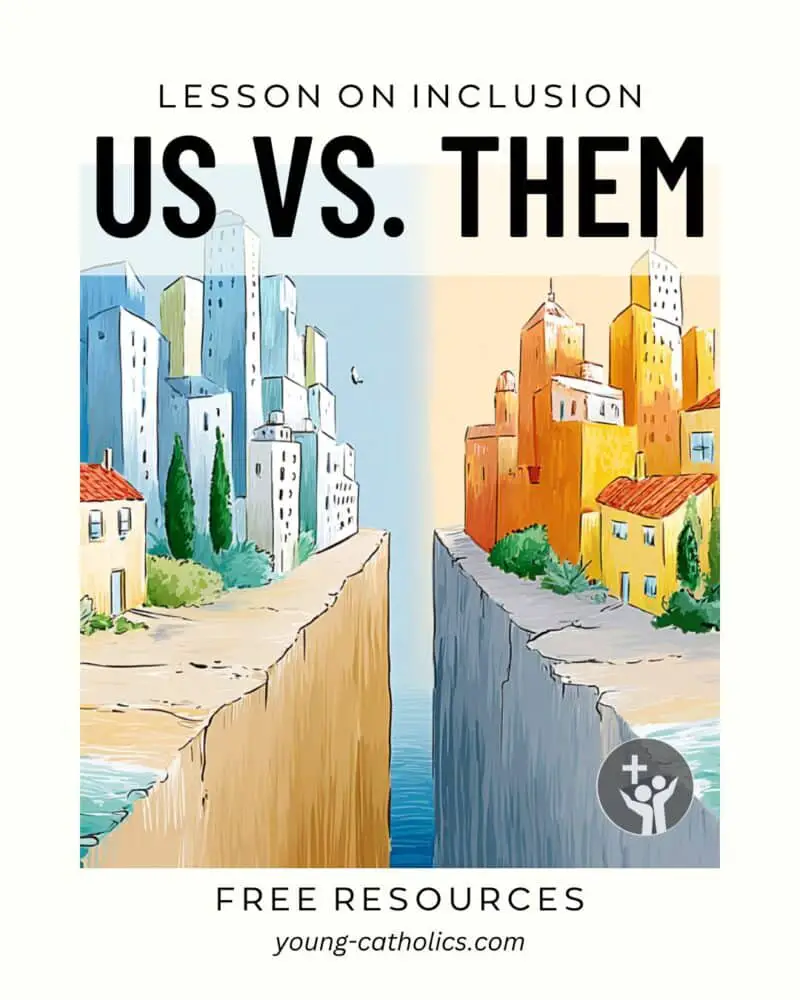
Us vs. Them – A Lesson Plan on Inclusion
This lesson plan aims to teach youth about inclusion through the story of Jesus and the Samaritan woman. The gospel passage in Matthew 15:21-28, featured on the 20th Sunday in Ordinary Time Year A, is discussed.
By examining this interaction, students can grasp the significance of accepting others despite differences. The lesson fosters understanding and highlights the message of inclusion that Jesus conveyed in the story.

All Together Now – A Lesson Plan on Racism
Discussing racism with teens can be challenging, as many claim to be “color blind.” However, this lesson plan addresses the reality of institutional racism and its impact on minorities who lack the same advantages as the majority. The gospel passage Matthew 15:21-28, featured on the 20th Sunday in Ordinary Time Year A, emphasizes themes of inclusion and love for all.
By exploring this story, the plan encourages understanding and compassion for others, promoting a fair and level playing field for everyone. Emphasizing these principles can help combat racism and foster a more inclusive society where love and acceptance prevail.

Not in My Basket! Game
“Not in My Basket” is an interactive game where youth aim to put their balls in their own basket while preventing the other team from doing the same. This game is beneficial for discussing racism and immigration topics.
In Matthew 15:21-28, the gospel for the 20th Sunday in Ordinary Time Year A, Jesus appears to initially reject the foreign Canaanite woman’s plea, but he ultimately heals her daughter due to her persistence. This story teaches the importance of persistence and compassion in overcoming initial barriers. By playing this game and reflecting on the gospel, young people can learn about acceptance, empathy, and breaking down walls of division.
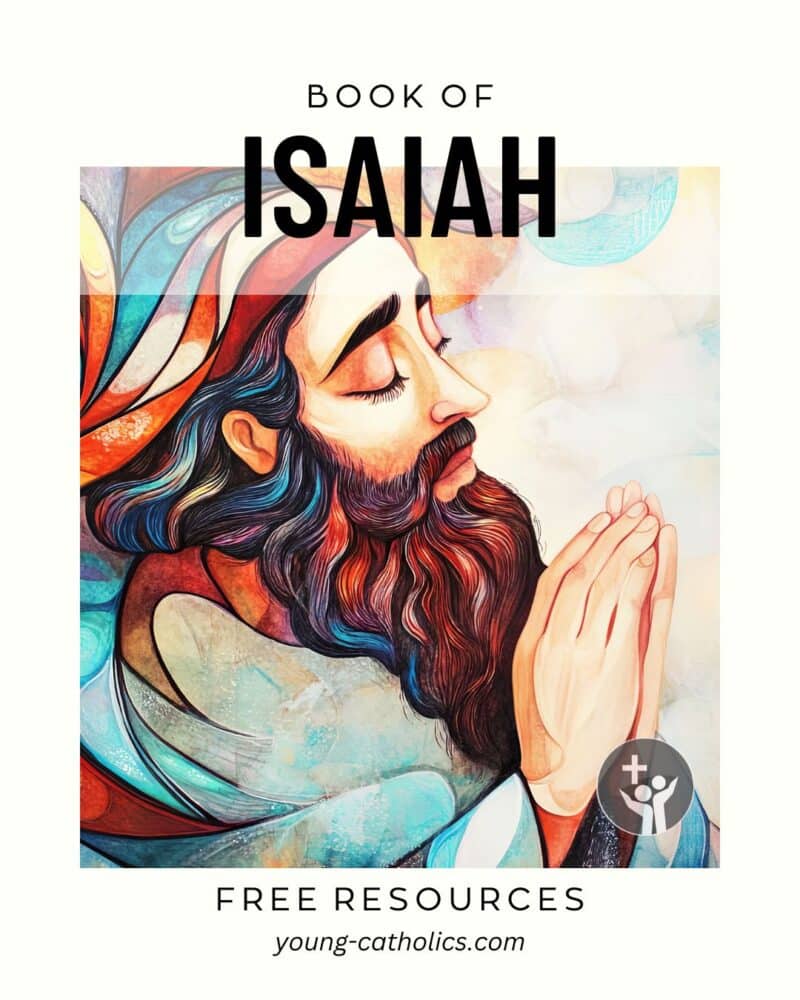
The Book of Isaiah: A House for All Nations
In Isaiah, God speaks of righteousness and justice as the foundation of His covenant. The passage reminds us that God’s love is not limited by race or nation. On the 20th Sunday in Ordinary Time Year A, this promise extends to foreigners who love God and keep His ways, showing that His covenant welcomes all who are faithful.
This reading reflects Isaiah’s larger message of hope and restoration. The prophet often speaks of God’s plan to gather His people and establish peace. Here, God’s house becomes a house of prayer for every nation, pointing to the universal call to worship Him.
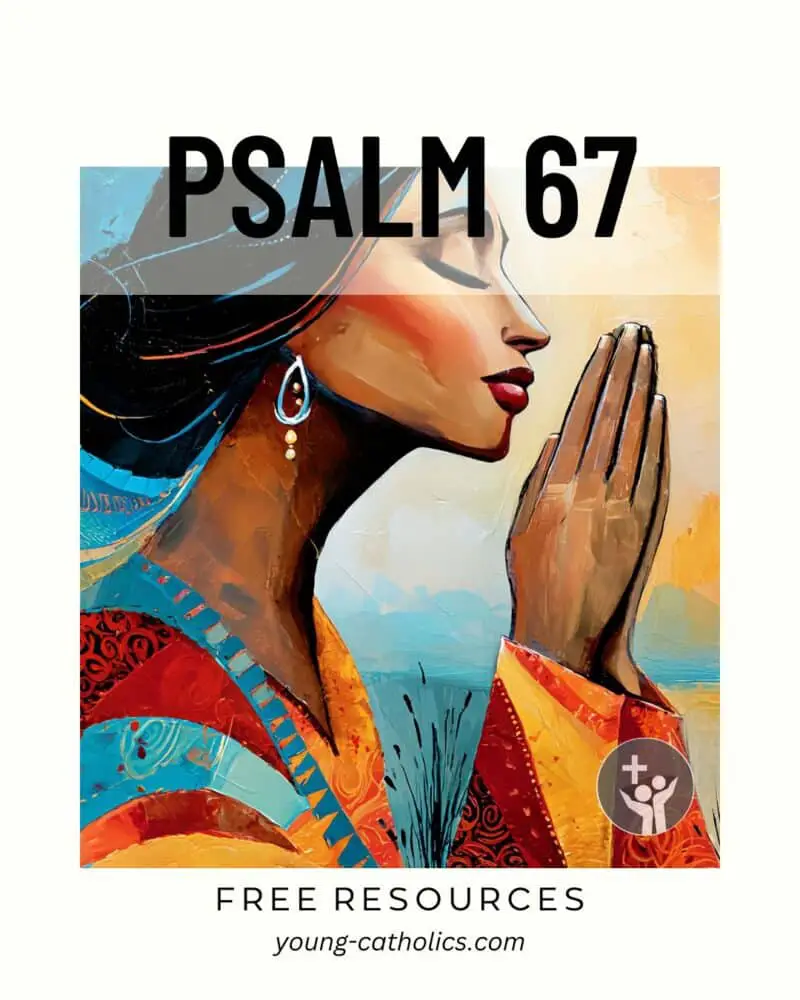
Psalm 67: Let the Nations Praise
Psalm 67 reflects a deep trust in God’s blessings and mercy. On the 20th Sunday in Ordinary Time Year A, the psalmist prays that God’s kindness will shine on His people so the whole world may know His ways. The focus is not only on Israel but also on all nations being drawn to praise the Lord.
The larger message of this psalm is the universal scope of salvation. It shows that God’s justice and guidance extend beyond one people, inviting every nation to rejoice in Him. This connects to the psalms’ wider themes of worship, thanksgiving, and God’s reign over all.
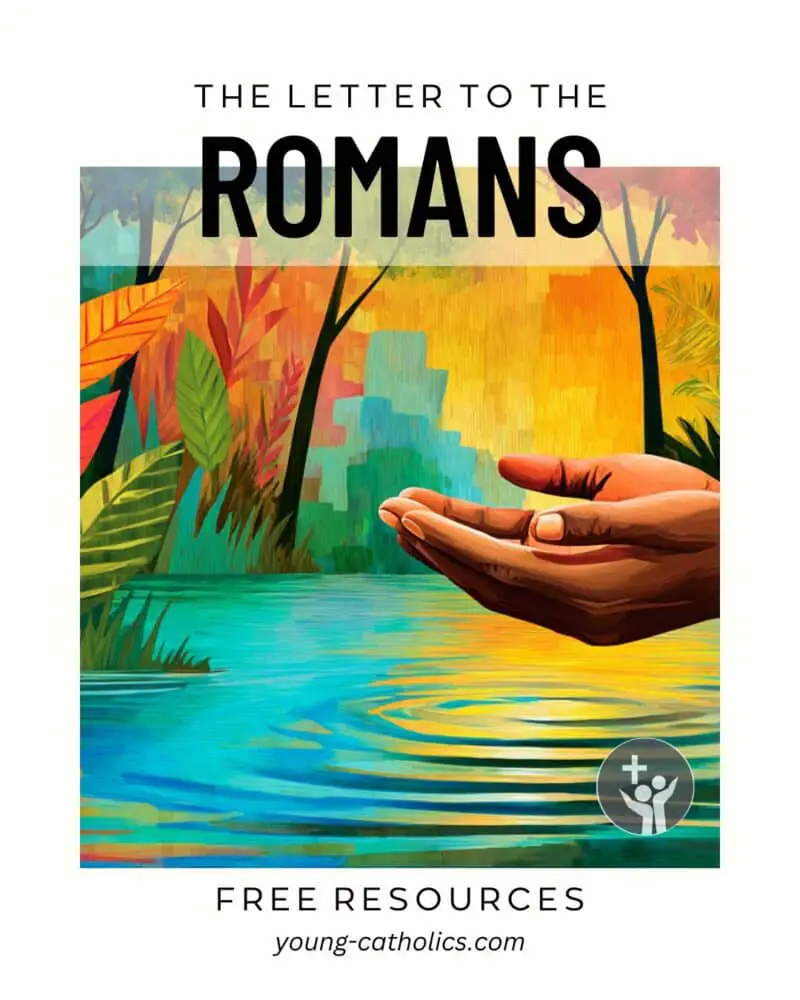
The Letter to the Romans: God’s Mercy for All
In Romans, Paul speaks of his role as the apostle to the Gentiles. On the 20th Sunday in Ordinary Time Year A, he shows that Israel’s rejection leads to the opening of salvation for others. Yet he also stresses that God has not abandoned His people. His gifts and call remain, revealing His plan to bring all into His mercy.
This ties into the wider themes of Romans: sin, grace, and the righteousness of God. Paul consistently highlights God’s mercy as the answer for both Jew and Gentile. In this passage, he points to reconciliation, showing that God’s plan is always to bring His people back into communion with Him.
Read more about Paul’s teaching in the Letter to the Romans.
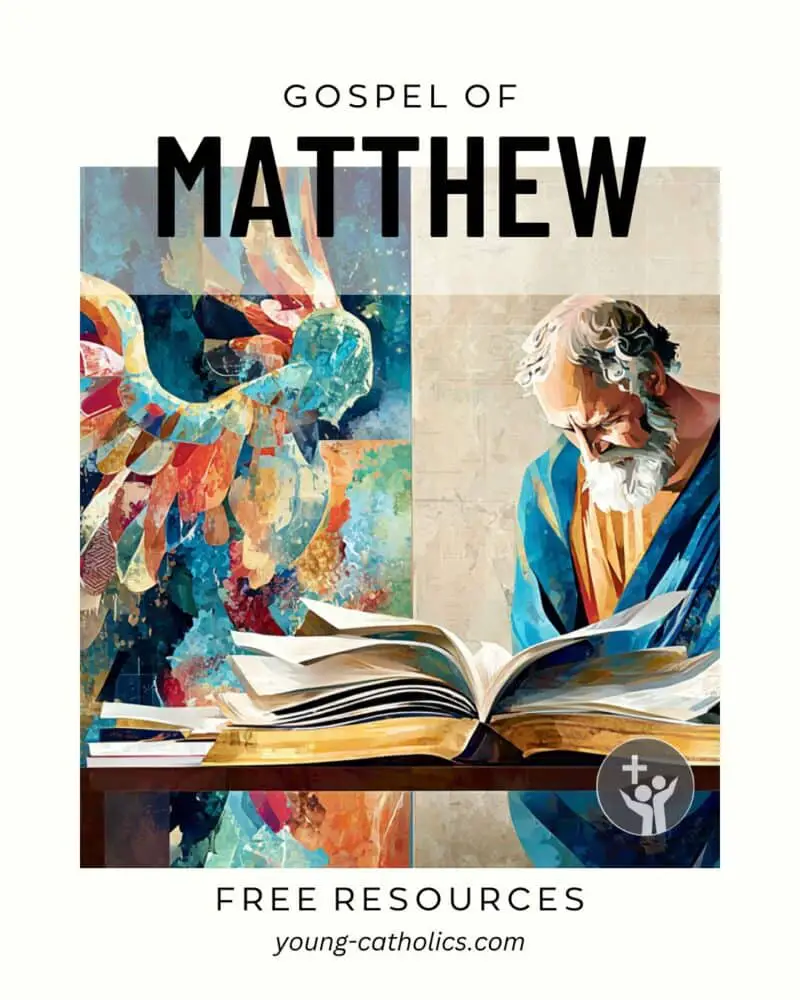
The Gospel of Matthew: Faith that Perseveres
In Matthew, the story of the Canaanite woman highlights faith that does not give up. On the 20th Sunday in Ordinary Time Year A, her persistence shows that faith can cross boundaries of culture and background. Jesus praises her trust, and her daughter is healed, showing that God responds to sincere faith.
This connects to Matthew’s larger focus on the kingdom of heaven and discipleship. The gospel often points to faith as the key to entering God’s kingdom. The woman’s example teaches that faith requires trust, humility, and perseverance.
Homilies and Commentaries for the 20th Sunday in Ordinary Time Year A
Breaking Prejudices: Embracing All with God’s Love
In this video reflection by Jeff Cavins for the 20th Sunday in Ordinary Time Year A, the theme of prejudice is explored. Jeff emphasizes the importance of breaking free from prejudging people based on various criteria, even within the Church. He draws attention to God’s heart for the whole world and how we are called to have a vision that embraces all nations and reaches out to those outside the Church. The Gospel story of the Canaanite woman’s faith exemplifies Jesus’ response to her cry for help, demonstrating that we, too, should listen to the cries of others and respond with love, acceptance, and the hope of bringing them into the family of God.
A Religion of Grace
In this homily for the 20th Sunday in Ordinary Time Year A, the Bishop Robert Barron discusses the contrast between religions of Karma and Grace. Grace is seen as a gift freely given, even to unworthy individuals, and it becomes the means to bring that Grace to the entire world, not hoarding it for oneself. The readings from Isaiah and the gospel emphasize that Israel’s chosenness is for the sake of the world, making us vessels of Grace to share with others.
A Foreigner’s Faith
Scott Hahn reflects on the Mass of the 20th Sunday in Ordinary Time Year A, focusing on the readings that emphasize the inclusion of all nations in God’s covenant. The Gospel story of the Canaanite woman exemplifies her unwavering faith in Jesus, despite facing tests and challenges. This reflection highlights how Jesus’s mission extends beyond Israel, embracing all people who believe in Him, fostering a worldwide family united by faith in the Lord’s salvation. In the Mass, believers of diverse origins come together to offer homage and be nourished as God’s children at His holy table.
The Gradual Overcoming of Racism, Even in Jesus
In his homily for the 20th Sunday in Ordinary Time Year A, Fr. Richard Rohr reflects on the human journey of care, starting with self-care, progressing to group and family care, and ultimately moving towards universal care. He emphasizes the challenge of overcoming racism and cultural prejudices, exemplified by Jesus’ initial hesitation towards a Canaanite woman. Fr. Rohr highlights the need for true conversion, recognizing all people as children of God and embracing universal love and care for humanity beyond the limitations of group affiliations.
Was Jesus Prejudiced Against Canaanites?
In this reflection, Deacon John Harden addresses the troubling passage in the Gospel of Matthew where Jesus encounters a Canaanite woman. He highlights the context of the event, explaining that Jesus’ visit to the region of Tyre and Sidon was to demonstrate an important lesson to his disciples. Previously, the disciples faced criticism for not observing ritual purity laws, and Jesus taught them that true purity comes from the heart, not from external rituals. The encounter with the Canaanite woman exemplifies this lesson, as Jesus praises her great faith, demonstrating that God looks beyond heritage and customs to value a pure heart. The episode emphasizes the significance of humility, persistence in prayer, and genuine faith in God’s eyes.
Reflection for the 20th Sunday in Ordinary Time Year A
The 20th Sunday in Ordinary Time Year A reminds us that God’s love and mercy extend to all people. The readings show that faith is not limited by background or nationality. God welcomes those who seek Him with sincerity, and His mercy is always available. The Canaanite woman’s faith in the Gospel teaches us that perseverance in prayer brings blessings. These reflections help us see how God calls us to trust Him and to build an inclusive and faithful community.
Inclusive House of Prayer
The First Reading for the 20th Sunday in Ordinary Time Year A speaks of God’s house as a place for all people. It is not just for one group or nation. Those who love Him and follow His ways will be welcomed. God does not turn away those who seek Him with sincerity.
The Lord asks for righteousness and justice. He calls people to obey His covenant and keep the sabbath holy. This is not just for the people of Israel but for all who choose to follow Him. His love and blessings are not limited by background or nationality.
This reading connects to the Gospel, where Jesus listens to the Canaanite woman. At first, she seems like an outsider, but her faith brings her close to Him. This shows that God’s love is greater than human divisions.
As followers of Christ, we are called to build a welcoming community. The Church is meant to be a house of prayer for all people. Just as God does not exclude anyone who seeks Him, we must also open our hearts to others.
God’s Enduring Mercy
The Second Reading for the 20th Sunday in Ordinary Time Year A reminds us that God’s mercy lasts forever. Paul speaks about the Gentiles being included in God’s plan. At first, they were seen as outsiders, but now they are welcomed. This was not by accident. It was part of God’s plan all along.
God’s gifts and calling do not change. Even when people turn away, He does not abandon them. Paul explains that the disobedience of some has made room for mercy. Both Jews and Gentiles have received God’s kindness, not because they earned it, but because He chooses to give it.
This reading shows that God’s mercy is greater than human failure. He does not hold grudges or take back His promises. Instead, He continues to invite people back to Him, no matter their past.
Like the Canaanite woman in the Gospel, we all rely on God’s mercy. She did not come to Jesus because she deserved His help, but because she believed in His goodness. Her story reminds us that God’s mercy is for everyone who seeks Him.
Faith Beyond Borders
The Gospel for the 20th Sunday in Ordinary Time Year A tells the story of a Canaanite woman who asks Jesus to heal her daughter. She is not Jewish, and at first, Jesus seems to ignore her. The disciples even want to send her away. But she does not give up. She keeps asking until Jesus responds.
Her persistence shows deep faith. She believes Jesus can heal, even when she faces obstacles. Jesus tests her faith, and she proves that she trusts Him completely. In the end, Jesus praises her and grants her request.
This story shows that faith is not about where you come from. It is about trusting in God. The woman was not part of the chosen people, yet her faith was strong. Jesus did not turn her away in the end. He saw her belief and answered her prayer.
This teaches us to welcome others as Jesus did. Faith is not limited by race, culture, or background. God looks at the heart. The 20th Sunday in Ordinary Time Year A reminds us that anyone who believes in Him will be heard.
God does not turn anyone away. The 20th Sunday in Ordinary Time Year A calls us to live with faith and perseverance. Just as Jesus recognized the faith of the Canaanite woman, He sees our trust in Him. We are reminded to pray without giving up and to welcome others with open hearts. May we continue to seek God and share His love with the world.
Prayer
Lord, You welcome all who seek You with faith. Help us to trust in Your mercy and never give up in prayer. Teach us to open our hearts to others, just as You do. Strengthen our faith so that we may follow You with confidence. Thank You for Your love that never fails. Amen.
Reflection Questions for the 20th Sunday in Ordinary Time Year A
- How does the First Reading show that God welcomes all people?
- What does Paul say about God’s mercy in the Second Reading?
- How does the Canaanite woman show persistence in the Gospel?
- Have you ever felt like an outsider in your faith? How did you respond?
- What does this Gospel teach about perseverance in prayer?
- How can you make your church community more welcoming to others?
- Why do you think Jesus tested the Canaanite woman’s faith?
- How does this Sunday’s message challenge the way you see others?
- What obstacles keep you from trusting God completely?
- How can you grow in faith and trust in God’s plan for your life?
Social Media Graphics and Bulletin Artwork for the 20th Sunday in Ordinary Time Year A
If you would like an image to be made available as a specific product (card, poster, mug, etc.) or as an extra high resolution image for personal use just post a comment about what you want and we will create a link to our online store for you.
Waiting for Crumbs of Grace

This image for the 20th Sunday in Ordinary Time Year A captures the spirit of the Gospel story of the Canaanite woman, reminding us of faith, persistence, and God’s mercy.
It is available for download to use in your parish bulletin or newsletter. Share it with your community as a way to connect the Sunday readings with a simple but meaningful image.
Paid subscribers may download a large copy this digital artwork without watermarks, suitable for use in bulletins, social media, newsletters, etc., free of charge by clicking here. You must be logged in as a paid subscriber to access the file.
Only current paid subscribers have the rights to use the artwork.
Music Suggestions for the 20th Sunday in Ordinary Time Year A
The music selections for the 20th Sunday in Ordinary Time Year A reflect themes of faith, mercy, and inclusion. Some songs focus on God’s welcoming love, reminding us that His house is open to all. Others celebrate unity, calling people of all nations to worship together. There are also songs about trust in God’s mercy and the power of persistent prayer. Some selections have a gentle, reflective tone, while others are joyful and uplifting. Together, these songs help express the message of the readings in a way that speaks to the heart.
- A Place at Your Table by Ben Walther
- A Rightful Place by Steve Angrisano
- All Are Welcome by Marty Haugen
- All Creatures of our God and King
- All People that on Earth Do Dwell
- Amazing Grace (My Chains Are Gone) by Chris Tomlin
- Come Alive (Dry Bones) by Lauren Daigle
- Gather Us In by Marty Haugen
- O God, Let All the Nations Praise You
- In Christ There Is No East or West by William A. Dunkerley
- King of My Heart by Greg Walton
- Lay It Down by Will Reagan & United Pursuit
- Make Me a Channel by Sarah Hart
- Praise my Soul the King of Heaven
- Song of Hope by Robbie Seay Band
- The Cry of the Poor by John Foley
- The Summons by John L. Bell
- There’s a Wideness in God’s Mercy by Fredrick William Faber
- We Are Many Parts by Marty Haugen
Music directors and musicians can use these selections to highlight the themes of the 20th Sunday in Ordinary Time Year A. These songs can help people connect with the readings through prayer and praise. If you have other music that fits these themes, share your suggestions in the comments. Let’s encourage one another to use music to strengthen faith and bring people together.
Questions and Answers for the 20th Sunday in Ordinary Time Year A
What does the First Reading teach about God’s house?
God’s house is a place for all people who follow Him. He does not turn away those who seek Him with sincerity.
Why does Isaiah mention foreigners?
He wants to show that God’s love is not just for one group. Anyone who follows God’s ways is welcome.
What does keeping the sabbath mean?
It means setting aside time to honor God. It shows trust in Him and obedience to His commands.
Why does Paul talk about jealousy in the Second Reading?
He hopes that his own people will see how Gentiles have received God’s mercy and turn back to Him.
What does it mean that God’s gifts and calling never change?
God does not take back His promises. His love and mercy last forever.
How does the Second Reading connect to the 20th Sunday in Ordinary Time Year A?
It reminds us that God’s mercy is for everyone. He calls all people to receive His love.
Why did Jesus seem to ignore the Canaanite woman at first?
He was testing her faith. He wanted to show His disciples that true faith is found in unexpected places.
What can we learn from the Canaanite woman?
She teaches us to be persistent in prayer. Even when things seem difficult, we should keep trusting God.
How does the Gospel of the 20th Sunday in Ordinary Time Year A challenge us?
It challenges us to look beyond differences and see faith in others. God does not judge by background but by the heart.
What does the 20th Sunday in Ordinary Time Year A say about inclusion?
It shows that God welcomes all people who believe in Him. Faith is not limited by culture or nationality.
How can we apply these readings to our lives?
We can trust in God’s mercy, pray without giving up, and welcome others into our faith community.
Faith That Never Gives Up
The 20th Sunday in Ordinary Time Year A shows that God welcomes all who turn to Him. Isaiah speaks of foreigners who follow God’s ways and are accepted. Paul reminds us that God’s mercy is for everyone, not just one group. In the Gospel, a Canaanite woman asks Jesus to heal her daughter, showing strong faith.
At first, Jesus seems to ignore her, but she does not give up. She keeps asking, believing He can help. Jesus praises her faith and heals her daughter. This moment shows that God listens to those who trust Him.
These readings teach about faith, mercy, and persistence. God does not turn people away because of where they come from. He looks at their hearts and their trust in Him. The 20th Sunday in Ordinary Time Year A reminds us to keep believing and never give up.
Your Turn
The readings for the 20th Sunday in Ordinary Time Year A invite us to think about faith and perseverance. Have you ever felt unheard in prayer? This Gospel reminds us to keep trusting, even when answers take time.
Take a moment to reflect on these readings. How do they speak to your life? Share your thoughts in the comments. Your story might encourage someone else.


Leave a Reply